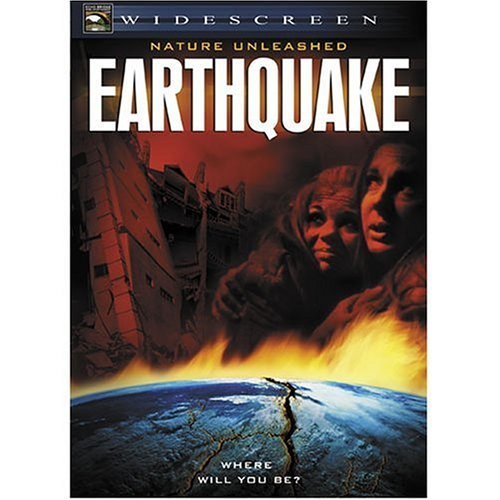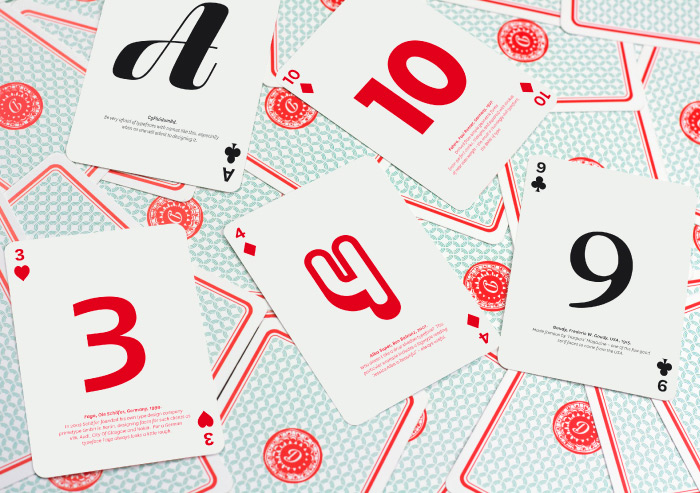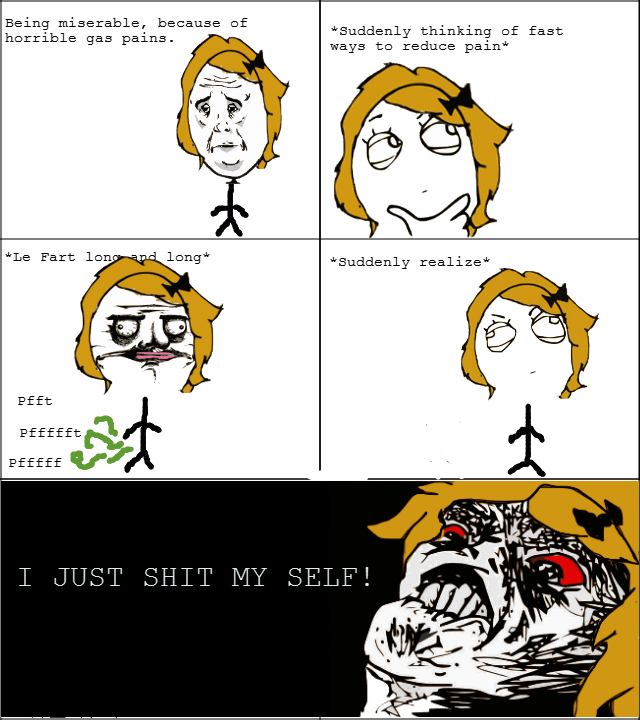neynabest is from Cyprus, has been a member for 13 years and last logged in 13 years ago.
|
Trade Policy:
Jallen Messersmith, who plays for Benedictine College in Atchison, Kan., is believed to be the  first openly gay active player in men’s college basketball in the United States. As the title implies there are plenty of reflective surfaces in the new video for Justin Timberlake'[...]The sudden end of crippling energy shortages and the re-emergence of the police suggest that those opposed to President Mohamed Morsi had tried to undermine his administration. Samsung has pushed back the launch of its Knox security software for Galaxy Android  smartphones until summer, according to a New York  Times report that claims more testing is needed before Knox finds its way into  people's hands. To further collaboration, build ongoing relationships, facilitate discussions and share information of value to other departments. A new card rewards users with cash back for paying on time. His role in House made him the highest-paid actor ever in a TV drama, but with a new album out this week Laurie is keen to follow his real loveAbout an hour into my encounter with Hugh Laurie, in a suite at the Dorchester in London, he starts protesting at length about how boring his answers to my questions are. He had been talking – rather interestingly – about his theory that television, rather than film, was the medium through which the US "not just projects its image of itself to the world, but actually decides what its image is. It's America's way of conversing with itself about what it believes to be important."He has just finished telling me that he doesn't think British TV is as interested in expressing grand ideas about identity and purpose – "I think that's a bit highfalutin for us" – when he suddenly brings himself up short. This is all so boring that he is boring himself, he says. He gestures towards the iPhone on which I'm recording the interview. "If I get any duller," he sighs, "I think your phone might actually go: 'Fuck it, I'm not recording this. Really this application is designed to record things of value. I mean, the assumption was you weren't just going to record a man scratching his arse. Because if that's what you're going to do, I'm quitting. Scramble. Escape.'"This kind of thing is supposed to be par for the course when you interview Laurie. He famously loathes talking to journalists almost as much as he hates being photographed, and his attitude to being photographed would impress a 19th-century Native American: "I really do believe the camera steals the soul. But that may be because I'm worried about my soul. I don't have much of a soul to begin with, I can't afford to lose much." That said, his aversion to being photographed has not precluded him becoming the "spokesmodel" for L'Oreal's male skincare range. "Proudly so!" he says, explaining he uses the money to fund a variety of charitable projects in Africa and claiming he doesn't really know what being a  spokesmodel entails: "I made a commercial and I was photographed, I did a poster once. I'll presumably have to do that again. If you're going to ask me questions about skincare, there's not much I can tell you. Don't rub a cheese grater up and down your cheeks. That would be my advice. Don't dunk your face in engine oil or other caustic substances. I don't know anything about it. They sort of ask you to do this thing and you go: 'You're out of your fucking mind, not in a billion years would I consider such a thing.' Then, as they tell you it's a great deal of money, the thought crosses your mind: 'With that money I could build a school in Senegal.' And then you can't say no. Because if you do say no, what you're saying is that your public pose is more important than people getting a school in Senegal or polio vaccinations in Uganda or whatever. You can't do that. You just can't."Still, he once compared talking to the press to putting his testicles on a chopping board – and, judging by his past interviews, it almost invariably turns into an exercise in caustic self-deprecation and soul-searching, which journalists tend to take as symptomatic of a deeper malaise. Laurie has struggled  with depression in the past, and seems big on depicting himself as a man who feels guilty about his apparently undeserved success, who doesn't much enjoy being famous  (something of a problem given his eight-year tenure as the titular star of House, which ended last year but at its peak was the most-watched TV show in the world, distributed to 66 countries and for which he commanded £250,000 an episode, getting him in Guinness World Records as the highest-paid actor ever in a TV drama), for whom life was "a gradually descending mist of confusion and doubt" and whose "version of happiness consists of not  being happy".The thing is, today at least, he does not seem much like that at all. He does react a little suspiciously when I say I like his new album, Didn't It Rain, a follow-up to 2011's Let Them Talk, on which he once again performs classic blues songs, music he says he has loved since childhood. "Thank you for saying that, I'm very relieved," he begins, before frowning. "Well, if you mean it. You have to say that otherwise it's going to be awkward, isn't it? 'Heard your album, sort of hated it. Anyway, my first question.' It's a difficult way to kick off, I suppose."Then again he seems genuinely startled by Let Them Talk's success, perhaps with good reason. Actors who parlay their fame into recording careers rarely have as smooth a ride as Laurie seems to have done. Despite a case of nerves in the studio that could be stayed only with "proper and sensible applications of whisky and beta-blockers and picking the right people to be around you – people who, even if they are rolling their eyes and going 'What a wanker', at least have the grace to do it behind your back", Let Them Talk was both well-reviewed and big-selling. He says he didn't read what anybody wrote about it – "it seems to me if you want to be protected from the unpleasant stuff,  you can't go just reading the good stuff, that seems wrong" – but he can't have missed the gold albums and the sold-out tours. "I know that it did all right, and I was surprised by it. When people buy a ticket, that I sort of understand, it says my name on it and they've watched the television show, and they think: 'Ah well, if nothing else, we'll see the bloke off the TV.' But buying a record, you don't get that, you don't get the visual. So I was very, very surprised that people  were able to make the sort of adjustment. Because, to be perfectly honest, I'm not sure I would." He thinks for a moment. "For example, Clive Dunn," he says, a little unexpectedly. "Splendid. Clive Dunn, as I understand it, retired to the south of Spain, where he worked extensively in watercolours. I don't own any of Clive Dunn's watercolours. I loved him in Dad's Army, loved him. But not enough to actually seek out his watercolour work."For someone who apparently hates being interviewed so much it can threaten to bring on a panic attack – "I don't like the act of talking, it makes me slightly light-headed," he protests when his PR ventures in from the room next door to ask how it's going. "I get a bit … is it hypertensive or hypotensive? Anyway, the brown paper bag thing" – Laurie is thoughtful and engaging, very funny, extremely sharp, given to long answers that deviate from the question and frequently end with him asking questions of himself. In fact, he is such jolly company, it is hard not to wonder if the loudly expressed ennui, the stuff about not having a soul and the threats to start hyperventilating are really glimpses into the tortured self-doubting soul that broils beneath. I just think he finds being Eeyorish funny, which in fairness, in his hands, it is: "If a thing's worth doing, it's almost automatically not worth doing because everyone else is doing it, that seems to be the way of the modern world," he says. "'You have to go to this great restaurant.' Well, no, we can't, because you've said that now and therefore it's going to be a nightmare because everyone else is there. I want to go to an empty restaurant. Not that I hate people, you understand," he adds. "But there are a lot of them, if you look around."Perhaps success has changed him. He certainly thinks the success of House has made him more confident, in a way that his previous successes – whether as a world-class schoolboy rower, or as part of the Footlights team that won the first Perrier award, or as one half of Fry and Laurie, or in Blackadder – failed to do. "It did. I've never really owned up to that before. Well, no one's ever noticed it actually, so bravo. I always felt I wasn't really sure whether I belonged, whether I was good enough. You know, I never went to drama school, tinnitus miracle have any certificates saying: 'He's a qualified actor.' But I did think that House was something I didn't have to apologise for. It was something I was really proud of and it was sort of … whether you liked it or not, it was undeniable. You don't have to explain who you are to an audience and you also don't have to explain  who you are to the people you work with. I always found that incredibly hard. You go on a set and you just know that the last person the camera operator photographed was Robert De Niro and you have this in your head, he's just going: 'Oh, for fuck's sake.' Once an audience or the people you're working with at least know why you're there, they're not questioning it, they're  not going: 'What? Why? Who the fuck's this guy?' That does make a big difference."He even seems to have come to terms with being recognised all the time, which at one point is supposed to have bothered him so much that he took to wearing a crash helmet  in the street to avoid detection. The repercussions of  being in such a huge TV show – which furthermore turned him into a sex symbol, a subject he clearly doesn't enjoy being addressed ("it's pish and tosh") – still affect his life, he says. Before he went on holiday to India recently, he  checked whether House was shown there, as that would dictate whether he could use public transport (it wasn't, he did). And he recalls the time five years ago when he went to Spain. "I went to the Gaudi cathedral in Barcelona and I wasn't able to look up at it, because there were so many tourists around and they were all with cameras. I was looking at the ground, taking pictures of the cathedral and then looking at them on my camera, because I didn't dare look up. It was just crazy. It was crazy. People running towards you, running. But it's negligible, really. There are many, many worse things in the world."Nevertheless, he seemed more relieved than anything when House ended, immediately informing the press that he was never going to make another TV series again. "Did I? No, I'm sure I didn't say that. If I did say something like it, what I meant was I didn't want to sort of  bounce straight into another thing. You don't get divorced on a Tuesday and married again on a Saturday. Apart from anything else I'm not sure that I could physically do it, to be the lead of a thing, to  be in every scene and to take responsibility for something … it's hard going. It doesn't seem like it, of course, but it's hard going if you care about it. You know, brain surgery's not difficult if you don't care whether the person dies, it's actually quite easy. Flying a plane is quite easy if you don't mind crashing.  That's what hard means. It's an expression of how much you care about the result. And if you are proud of it, or you believe it can be good and you want it to be good, then it can be sort of infinitely hard, to the point where it can drive you a bit bonkers."He doesn't miss the workload – "I'm really taking to not going to work at five in the morning" – and the series's end means he can spend more time in Britain, after years of spending nine months out of 12 working in LA. Not, he adds, that he is complaining about LA."I've got very little sympathy with actors who come back and go: 'I'm just a real bloke, you  know, all that Hollywood bullshit.' Oh, fuck off. It's such wank. It's a lie that the British press wants to be told that LA is very shallow, glitzy, venal, superficial, all that stuff. British readers find it very comforting. 'Yes, that's why my ancestors didn't cross the Atlantic with the pilgrim fathers. They knew that it would end up as Sodom and Gomorrah and life in Chipping Norton is actually much realer.' I'm damned if I'm going to use the conventional cliche about Los Angeles. There's good and bad. There are great things about Los Angeles. The trees are fantastic: some of the best trees you'll see anywhere. The architecture: miserable, looks like a petrol station. Very, very clever people; very, very ambitious people. Clever ambitious people can make for slightly untrustworthy people, but sometimes the intelligence and ambition are quite exhilarating in their own way. You wouldn't necessarily want to turn your back on them, but I've known people like that in other parts of the world."Nevertheless, he gives the impression of being noticeably less interested in a career in Hollywood than  he is in making records and performing music: you get the feeling he thinks being offered a chance to make records is pretty much the best thing to have resulted from House's success. He is about to appear in Disney's sci-fi film Tomorrowland, but says he turned down the role as the lead villain in the remake of Robocop because it clashed with a recording session.When I ask him if he prefers music to acting, he doesn't think about his answer. "Yes. I do. There's a sensual pleasure involved in making sounds, harmonious sounds, that I just can't get, and I don't think anyone can quite get, from acting. The end of a day filming is just an  audit of all the things you did wrong. It's like: 'Fuck, I didn't think of that, if only I'd done this, if only I'd done that.' With music, you can hit bum notes and you can do all kinds of things wrong, but the sensual pleasure of playing a chord or some sort of groove, and the drummer joins in, a bass player joins in and just for that moment, that is the most exquisite pleasure there is. It just cannot get better than that.  It takes over my whole body in a way that acting just can't."As he talks about it, he doesn't look like a man who is boring himself. "There's just nothing, nothing like it. Nothing like it. It's almost … it's almost indecent, how pleasurable it is. Which is why a lot of regions ban it." Then he frowns, and the Eeyorishness returns. "As they should," he adds, heavily.• Didn't It Rain is out on Monday.Hugh LaurieBluesUS televisionTelevisionAlexis Petridisguardian.co.uk © 2013 Guardian News and Media Limited or its affiliated companies. All rights reserved. | Use of this content is subject to our Terms & Conditions | More Feeds Reynold Levy, the president of Lincoln Center, hopes to  raise more than $8 million for the institution’s spring gala. Faced with skyrocketing fuel bills, major U.S. airlines have announced nearly $1 billion in losses for the first three months of the year, a financial toll that is forcing carriers to slash flight schedules, cut jobs, add passenger fees and even seek potential merger partners. Filed under: Cellular, BusinessWith a few copmpanies and a handfuls of startups banking on the future of mobile marketing -- kinda like Google bet its future on text ads all those years ago -- the Hyperfactory is set to offer a global platform for contextual media planning based around this platform.Companies want to find out which types of campaigns work and don't work on the "third screen" -- the mobile phone screen, that is.Read | Permalink | Email this | Linking Blogs | Comments These are hairy times for fans of simian fiction. The autobiography of Tarzan's sidekick , " Me Cheeta ," was mildly amusing, but Sara  Gruen's silly " Ape House  " left me dragging my knuckles on the floor, and Laurence Gonzales's " Lucy " read like something thrown out between the bars. Now, though,... Arron Afflalo bolted through a crowd of Hornets defenders as he angled toward the hoop, switching the ball from his left hand to his right to hit a layup Orlando needed to keep another game from slipping away. MIT OpenCourseWare (OCW) has released a new version of 9.00 Introduction to Psychology in the innovative OCW Scholar format designed for independent learners. This course  presents a scientific overview of how the mind works, and applies that knowledge to contemporary debates around topics such as nature versus nurture, free will, consciousness, human differences, the self and society.“I hope site visitors come away with an appreciation of just how amazing people are,†says John Gabrieli, the Grover M. Hermann Professor in the Department of Brain and Cognitive Sciences, who developed the course. “I hope the course makes you think about yourself and your friends in a different way than you ever did before.â€Gabrieli, a renowned expert in the field of learning and memory and a principal investigator at the McGovern Institute for Brain Research, has used brain-imaging technology combined with behavioral testing to map abstract concepts such as memory, thought and emotion to specific regions of the brain. Gabrieli’s research has significantly advanced our understanding of how learning and memory are organized in the mind. Some of his most recent research has provided insights into key aspects of autism, dyslexia and visual memory. Gabrieli has also received numerous awards for his teaching,  including the Dean's Award for Distinguished  Teaching at Stanford University forex growth bot original version of 9.00 Introduction to Psychology from 2004  has received more than 650,000 visits. The new scholar version provides visitors to the OCW site with an even more robust learning experience.OCW Scholar courses represent a new approach to OCW publication. MIT faculty, staff and students work closely with the OCW team to structure the course materials for independent learners. These courses offer more materials than typical OCW courses  and include new custom-created content. The Introduction to Psychology course provides a complete learning experience for independent learners, including lecture videos, reading assignments from a free online textbook and detailed notes from another book, interactive quizzes for each session, discussion content to elaborate key concepts, online resources for further study, review questions and exams with solution keys.The first five of a planned 15 OCW Scholar courses were launched by MIT OpenCourseWare in January 2011, and have collectively received more than 800,000 visits in less than a year. The initial OCW Scholar courses included Classical Mechanics, Electricity and Magnetism, Solid State Chemistry, Single Variable Calculus, and Multivariable Calculus.Seven OCW Scholar courses were published in 2012. Linear Algebra, Differential Equations, Principles of Microeconomics, and Introduction to Electrical Engineering and Computer Science were published earlier this year. Fundamentals of Biology, Introduction to Psychology, and Introduction to Computer Science and Programming were published this past month. OCW Scholar courses are published on the OCW site  with the support of the Stanton Foundation. NVprints sells patent-pending automation technology for 3-D printers enabling 3-D printer owners to rent access to customers through a mobile marketplace. The five-person team includes four MIT undergraduates — three  from MechE and one from EECS. Sophisticated medical imaging is often cited as a leading driver of health care costs. The increasing availability of techniques such as computed tomography (CT), magnetic resonance imaging (MRI) and positron emission tomography (PET), while aiding large number of patients,  has also made the treatment of disease and injury more expensive.But as a new study co-authored by an MIT economist observes, the growth of such cutting-edge medical imaging procedures has slowed, suggesting that the diffusion of technology does not necessarily lead  to steadily increasing health care costs. Instead, in the paper  — “The Sharp Slowdown In Growth Of Medical Imaging,†published this week in the August issue of the journal Health Affairs — MIT economist Frank Levy and David W. Lee of GE Healthcare suggest that a more selective use of high-end imaging is evolving within the medical profession. This transformation is likely due to the changing structure of insurance plans — especially the exercise of “prior authorization,†the preapproval of certain treatments — as well as increased concerns about the side effects of some imaging methods. In turn, the findings suggest the need for a nuanced understanding of the ways new technologies are incorporated into medical practices over time — and of the relationship medical practices may have to America’s fiscal situation.  “There’s no chance of ever getting the federal deficit under control unless you can get health care costs under control,†says Levy, a professor of urban economics in MIT’s Department of Urban Studies and Planning. “But just to say technology is the driver, I think, is an  easy way out in terms of looking at the system.â€â€˜More consideration’ of avoiding advanced imagingThe study by Levy and Lee builds on a 2010 Health  Affairs paper by researchers at Thomas Jefferson University in Philadelphia, who showed that after a rapid expansion in advanced medical imaging, use of the technologies for Medicare recipients slowed in 2006 and 2007. Combining statistics for the government-backed Medicare system with data from commercial insurers, Levy and Lee found that the trend extended at least through 2009, and included patients enrolled in employer-sponsored health plans, too.Specifically, from 2000 through 2005, use of CT scans among Medicare recipients (who are age 55 and older) grew by an annual average of 14.3 percent, but that growth  then declined every year after 2005, falling to 7.1 percent in 2006 and 1.4 percent in 2009. Among Medicare enrollees, the number of MRI exams increased by 14 percent from 2000 through 2005, but only grew by 2.6 percent during the 2006 to 2009 period. And among a sample of 1.1 million non-elderly, commercially insured people in the study, the number of CT scans performed on patients increased by 20.4 percent from 2002 to 2006, but by just 3.1 percent from 2006 to 2009.  Using data from commercial insurers, Levy and Lee, who is the general manager and head of health  economics and reimbursement at GE Healthcare, found that about half of the slowdown in MRI imaging involved diagnoses of back, elbow and knee problems; essentially, doctors in those cases appear to have opted for more conservative treatments to deal with ailments that may only have been temporary injuries. “Eight or nine years ago, the atmosphere [in clinics and hospitals] was  that if you’re not doing a scan, you’re not doing modern medicine,†Levy says. “Now … there’s more consideration about whether patients really need a scan or not. And in a lot of situations, that’s totally appropriate.†The study also included interviews with doctors and benefits managers to shed light on their decision-making practices.One external factor affecting these treatment decisions, Levy and Lee believe, may have been increased concerns about the exposure to radiation involved in CT and PET tests. (MRIs do not involve the same exposure to radiation.) But the main reason growth slowed, the paper suggests, is because of new insurance arrangements. These include larger deductibles: The percentage of employees with a deductible of at least $1,000 grew from 10 percent in 2006 to 27 percent in 2010. Levy and Lee also cite the increased use of “prior authorization†in insurance, which requires general practitioners to conform to guidelines about the appropriateness of medical treatments, such as exams and medication. Congress’ 2005 Deficit Reduction Act, which reduced reimbursements for imaging performed in physicians’ offices, also played a role. This may have reduced the incentives for doctors to acquire, say, MRI machines for their own offices and then use them frequently to pay for that initial investment. The new “fiscal pressure on the system,†Levy says, likely drove doctors to take a more moderate approach to imaging that would not have occurred “if money were not a problem.†Changing the normsAs Levy notes, the study implies “no general conclusion that we’re always overutilizing technology in every area.†Yet other researchers who have seen the study think the apparent connection Levy and Lee have found between insurance changes and the altered use of imaging may have parallels in other fields of medicine.  “I find [the paper] very plausible,†says Richard Frank, a professor of health economics at Harvard Medical School. “It’s instructive for thinking more broadly about the kinds  of things we need to do to bring down health care costs.â€To be sure, Frank notes, different medical disciplines “vary a tremendous amount.†However, he adds, “There are a lot of norms in medical practice, which adapt to the financial and management systems we have in place. And when we start  to change those systems … it starts to change the [medical] norms in important ways.â€Jonathan Skinner, a health care economist at Dartmouth College, calls the paper “a landmark study,†and suggests a pair of further research questions deriving from the study: one, whether the slowdown in imaging led to a slowdown in the follow-up procedures typically related to imaging, and two, whether some kinds of health care providers were quicker to than others to scale back on unnecessary imaging. For his part, Levy’s ongoing research on health care will continue to focus on imaging: He is working with a group of physicians at a major Boston hospital as they develop treatment guidelines to avoid excessive use of imaging technology. Levy’s work has been supported by an investigator award from the Robert Wood Johnson Foundation. When Prassad Karunakaran lived on a half-acre in Sykesville, northwest of Baltimore, tending to his spread came with the mortgage. Over time, the novelty of mowing turned into plain drudgery. Brett Rumford of Australia shot a 3-under 69 Saturday to lead by one stroke after the third round of the China Open, while 16-year-old Dou Zecheng of China trailed by 10 strokes after a 72. Jason Bonham’s Led Zeppelin Experience will tour with Heart this summer. When the Newseum opens April 11, visitors will see an extraordinary work of architecture housing extraordinary exhibits. Expectations for Apple to release an iWatch reached a new pitch yesterday as Bloomberg reported that such a device Secretary of State Clinton's assertion that the United States "did not lead" is belied by the large role the United States played in launching an UN-sanctioned strikes on Libyan leader Moammar Gaddafi's military capabilities. U.S. warships fired more than 110 Tomahawk missiles into Libyan territory Some student loan rates doubled as of July 1, as required under current law. But there’s still a chance they may be lowered retroactively. As  a child, Steve Davis dreamed of playing for Oklahoma and even tucked away a picture of the Sooners' quarterback he idolized in his dresser drawer. A shop amid the towers of Manhattan sells remote-control airplanes and boats, and a range of other toys that appeal to both young and |
Contact:
You have to be logged in to contact this member. |
 neynabest's Latest Sheets Feed
neynabest's Latest Sheets Feed neynabest's Latest Requests Feed
neynabest's Latest Requests Feed


Latest Sheets (0)
Member has not submitted any sheets yet.
Latest Requests (0)
Member has not requested any sheets yet.
Latest Friends (0)
Member has not added anyone as friend yet.